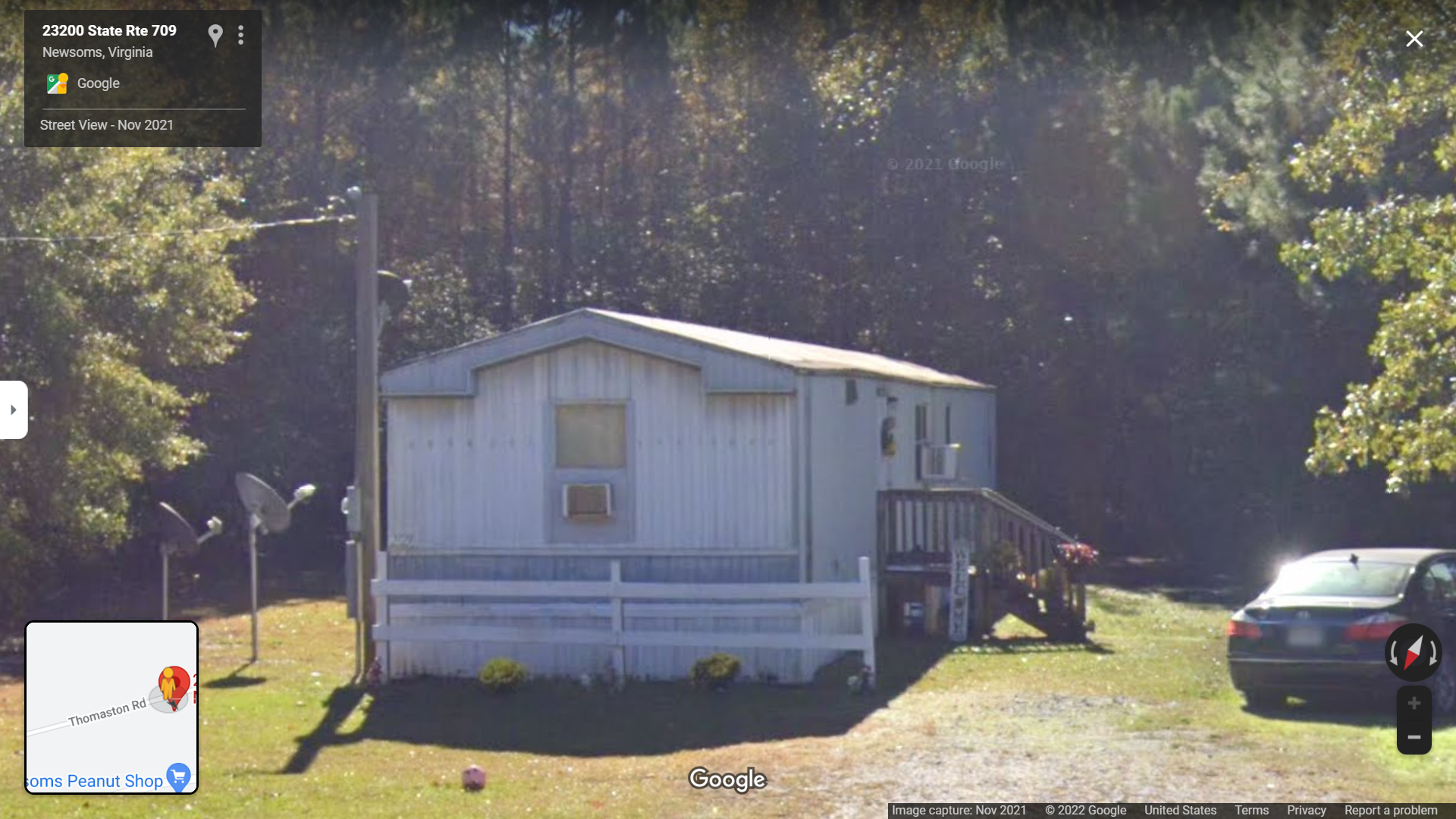This blog is named for my second attempt to invest in real estate. That project is a work in progress at the time I wrote this post, so i can’t tell you everything about it, but I can tell you about the first time i tried to invest in real estate.
My first foray into real estate was buying a property in a tax auction. It was quite the entertaining failure, and it taught me a lot about the real estate market, the shenanigans auction companies get up to, and how to research a property before making an offer.
First, a little background.
As you may know, if you own real estate and neglect to pay your property taxes, the local government may take steps to recoup the unpaid taxes. In some states (West Virginia is one) the county will file a tax lien and then sell the lien. In other states such as Virginia the county or city will take title to the property in a legal proceeding, and then sell it in an auction.
I bought a lot in Southampton County in one such tax auction in April 2022. The auction listing said the lot was at a specific address and a specific latitude and longitude. A quick check of Google showed that there was a mobile home at that address.
Unfortunately, while there was a mobile home at that address, my lot was actually located elsewhere.
1. The auction company knowingly auctioned off a lot with bad info.
When they sent someone to put a sign on the property announcing the auction, they were told by a tenant that the mobile home didn’t belong to who the auction company thought. Instead, it belonged to someone else. (The tenant was right.)
This did not stop the auction company from listing the lot, and letting me bid on it, but the more important detail here is that the auction company had been working from a corrupted database.
2. Official county records can’t be trusted implicitly.
Southampton County’s GIS, the online maps database covering the county, had a significant flaw in its data, a flaw which had gone undetected for a decade or more. Around ten properties along one road were misidentified in the GIS as being about 300 feet to the west of their actual locations. (I’ll explain how I figured this out.)
One of the reasons I was able to identity that flaw in the data was that Southampton County had a property tax database separate from its GIS.
3. Sometimes the property tax records are in the GIS, and sometimes they are not.
I don’t know how often this happens, but Southampton County kept its publicly-accessible property tax records in a database it shared with about a dozen other VA counties. Those records were not in the GIS, and if you didn’t know to look for that other database, you would never find it.
I only found that database because I had decided to check every page on Southampton County’s website, but once I did it told me that the lot i thought I was buying actually belonged to someone else.
Of course, you can’t really trust that database any more than the GIS; it too could have flaws. That is why you need to do more research.
4. You need to confirm records using multiple independent sources.
When I bid on that lot, I was relying on the auction company to be honest and accurate about the description in its auction listing. (What can I say other than I didn’t know any better.) Now I know to use independent sources to confirm any info provided by the seller.
My preferred way to do this is a site called Ownerly.com. This service costs $30 per month, and what it does is collate records from multiple databases, not all of which are publicly accessible.
What it told me about the Southampton County property was that the man who owned the mobile home had bought it close to 20 years ago, and had taken out a loan from a credit union to install the mobile home on his lot.
So while the auction company had told me that I was bidding on a lot with a mobile home on it, that was not the case.
So where was my lot? No one actually knew before the auction ended.
5. Sellers will sell you a lot without knowing if it even exists.
They literally did not know where the lot was when the county took title to it, and they didn’t know where it was when they sold it to me. This did not bother them in the slightest.
They did not know where the lot was, just that it was not at the address listed in the GIS. And while you would think that the sales contract would have to describe the lot accurately enough that you could find it, it turned out that the lot’s location as described in the deed book (and copied into the sales contract) was so vague as to be legally questionable.
Lot descriptions in the sales contract can be 100% different from the property listing.
6. Read the sales contract.
When I read the sales contract, it described the lot’s location along the lines of “starting from the northeast corner of Joe Blow’s lot, go 65 feet along the New Bridge road, and then turn right…”. That description was written when the lot was originally created in the 1960s. It might have been legally valid then, but according to a real estate lawyer friend it certainly wasn’t valid now.
You would think that the county would update the description before selling the lot in question, but you would be wrong.
7. Caveat Emptor.
I know this is true everywhere, but it is ten times as true when investing in real estate. You just don’t know if a seller can be trusted, so the only safe option is to trust no one.





0 Comments